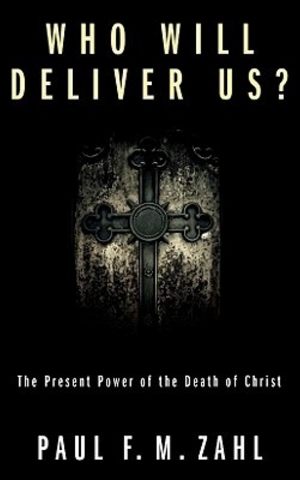
Who Will Deliver Us?: The Present Power of the Death of Christ
- Book
- Feb 1, 1985
ISBN: 0802724876
ISBN-13: 9780802724878
Mentions
See All
Jason Scott Montoya @JasonSMontoya
·
Sep 11, 2023
- Curated in Healing Broken Souls
Jason Scott Montoya @JasonSMontoya
·
Jan 5, 2024
- Post
"At the root of anger is fear. So deeply ingrained is the belief that we are small and weak, so vulnerable do we actually feel, that we have to protect ourselves with all our might.
The fear has to do with...anxiety of nonbeing. It is the feeling that we are, according to a convincing inner imprint, exposed and vulnerable persons, weak in the extreme, unable to protect ourselves by ourselves.
From the standpoint of the New Testament, the principal cause of fear is punishment. "Fear has to do with punishment" (1 John 4:18). For the Jews, to use Saint Paul's frame of reference, fear has to do with God's judgment of a person's or people's failure to live up to the standards of the Law, symbolized and summarized in the Ten Commandments. For the non-Jew, fear has, to do with terror of the fateful, nameless forces that dominate humanity and nature, of which idols must be built and to which tribute must be paid.
fear at its root is fear of God or forces conceived to be God."
Jason Scott Montoya @JasonSMontoya
·
Jan 5, 2024
- Post
"the primary fact for us to reckon with is the judgment we face, regardless of whether we identify this as coming from the God of the Jews or from universal cosmic forces.
the fear beneath all fears, which in turn creates the stress, depression, and anger of everyday life and human history, is fear of ultimate judgment. This is to say, the fear of ultimate condemnation, because fear of judgment implies condemnation. If we were confident of acquittal, judgment would not possess the sting it does. Judgment for us entails condemnation.
Imprisonments of fear, rooted in an ultimate fear of condemnation, cause the experience of living to be colored by anxiety, tension, depression, and rage.
We would do almost anything to prevent a return to the unbearable place of exposure, nonstatus, and dereliction to which condemnation refers us."
Jason Scott Montoya @JasonSMontoya
·
Jan 5, 2024
- Post
"Splitting of the self, which is an almost universal strategy of escape, implies practical suicide. As a form of escape, it is effective. It is also the heart and soul of tragedy.
...
Survivors of the Holocaust write that the most horrifying memory of the death camps is the experience of being treated as an animal, being regarded as subhuman."
Jason Scott Montoya @JasonSMontoya
·
Jan 5, 2024
- Post
"We take great pains to avoid painful truth and when we have no other choice but to stare it in the face, we still deny it, rationalize it, or contend against it.
...
Assimilation of negativity is a way of describing what happens when the unbearable experiences of our lives are brought within the mainstream of our conscious selves. It is another way of saying realism. Realism has never been a mean achievement. It is a hard-won asset. And it differs from cynicism, with which it is sometimes confused, by only a slender thread —the thread, I believe, of God's grace. Assimilation of negativity refers to a person's willing, painful embrace of the sorrows of life, of himself and his flaws, in coexistence, almost union, with his confidence, aspirations, and joys."